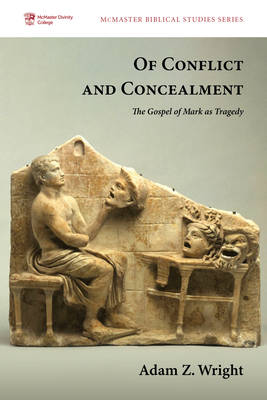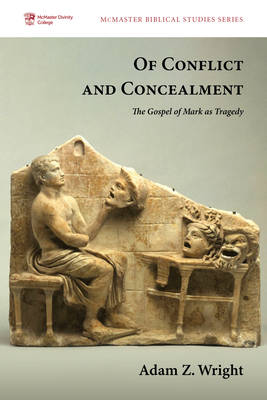
- Afhalen na 1 uur in een winkel met voorraad
- Gratis thuislevering in België vanaf € 30
- Ruim aanbod met 7 miljoen producten
- Afhalen na 1 uur in een winkel met voorraad
- Gratis thuislevering in België vanaf € 30
- Ruim aanbod met 7 miljoen producten
Zoeken
€ 46,45
+ 92 punten
Uitvoering
Omschrijving
Scholars have long debated the genre of the Gospels and many opinions have been put forward, such as biography, history, epic, or comedy. However, do the Gospels actually reflect these ancient genres? This book addresses this question and arrives at the conclusion that the Gospel of Mark was written as an ancient form of tragedy. Why would this matter to ancient or modern readers? Tragedy addresses the fundamental question of humanity's suffering and offers a philosophical perspective that orients the reader towards personal and societal growth. The Gospel of Mark fits within the tradition of tragic writings and speaks to the same challenges that all humanity faces: life is full of trouble and suffering, so how are we supposed to think about these things? The answer is to be found in Jesus, who is both divine and human, and who suffers as a result of engaging in conflict with the religious and political traditions of his time.
Specificaties
Betrokkenen
- Auteur(s):
- Uitgeverij:
Inhoud
- Aantal bladzijden:
- 248
- Taal:
- Engels
- Reeks:
- Reeksnummer:
- nr. 5
Eigenschappen
- Productcode (EAN):
- 9781725257221
- Verschijningsdatum:
- 29/10/2020
- Uitvoering:
- Paperback
- Formaat:
- Trade paperback (VS)
- Afmetingen:
- 152 mm x 229 mm
- Gewicht:
- 335 g

Alleen bij Standaard Boekhandel
+ 92 punten op je klantenkaart van Standaard Boekhandel
Beoordelingen
We publiceren alleen reviews die voldoen aan de voorwaarden voor reviews. Bekijk onze voorwaarden voor reviews.







